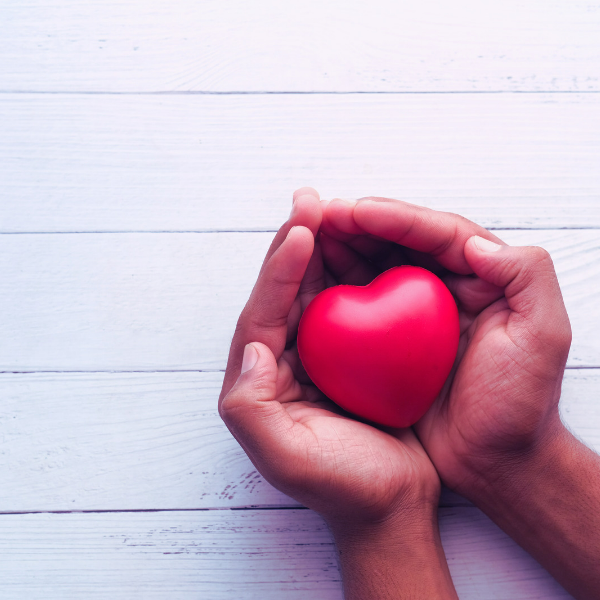For the month of February, I have been focusing on all things boundaries and relationships. One relationship that many of us tend to put to the back of our minds, is the relationship we have with ourselves. Loving oneself is not as easy as people say it can be. Speaking from experience – I actually have zero clue what it feels like to LOVE myself. But, I do know what it feels like to hate myself and why it is so important to hate yourself less.
Personally – I used to loathe myself, I couldn’t stand the sight of myself in the mirror, sound of my voice, hearing my name, anything at all. I went on in life for many years just thinking that is was normal and I couldn’t see it ever being any different.
Professionally – As a Social Worker who has been working with clients as well as professionals and students – I have noticed a theme. We are shit at liking ourselves! But we exceed at loathing ourselves, finding any reason possible, then going about our life feeding that self fulfilling prophecy!
After years of self help books, talking with close loved ones, therapy and personal development – I can confidently say I have moved away from self-loathing. Also, after years of helping others to improve their relationships with themselves and seeing the outcomes, I can attest to the profound impact of hating yourself less.
So, without further ado – let’s talk about how to hate yourself less (and why it’s important for holistic wellness).

10 things I hate about you you can do to hate yourself less
1. recognise the self hatred
The first step towards hating yourself less is noticing that it exists! By acknowledging negative self-talk, you can start to play close attention to your inner dialogue and identify harmful thoughts.
Knowing that you hate yourself may not be as obvious as acknowledging negative self-talk. Some other ways to know that you may hate yourself are –
- Avoiding looking in the mirror
- Refusing to have your photo taken (all the time)
- Picking at flaws in your body when your photo is taken, or you do see yourself in the mirror
- Eating Disorders
- Obsessive and rigid exercise regimes
- Body Dysmorphic Disorder
- Making yourself ‘super’ busy being everything to everyone else and ignoring your own needs
- Burying your head in work, being a workaholic by choice
- Skin picking, pulling your hair out, biting your nails until they bleed
- Putting yourself in risky situations, not caring about the consequences
- Being promiscuous (not in a liberating way)
- Never saying no when you’d really like to
- Feeling ‘not good enough’ or ‘too much’
- Telling others how useless you are at everything (even though you’re actually not)
- Feeling guilty for having a loving partner
- Feeling like a shit friend because you can’t solve all their problems
- Using alcohol or drugs frequently as a way of ‘shutting off’ from yourself
- Feeling like a ‘burden’ on loved ones because of your personality/trauma history/mental health challenges
This list could go on forever! What have you noticed comes up for you?
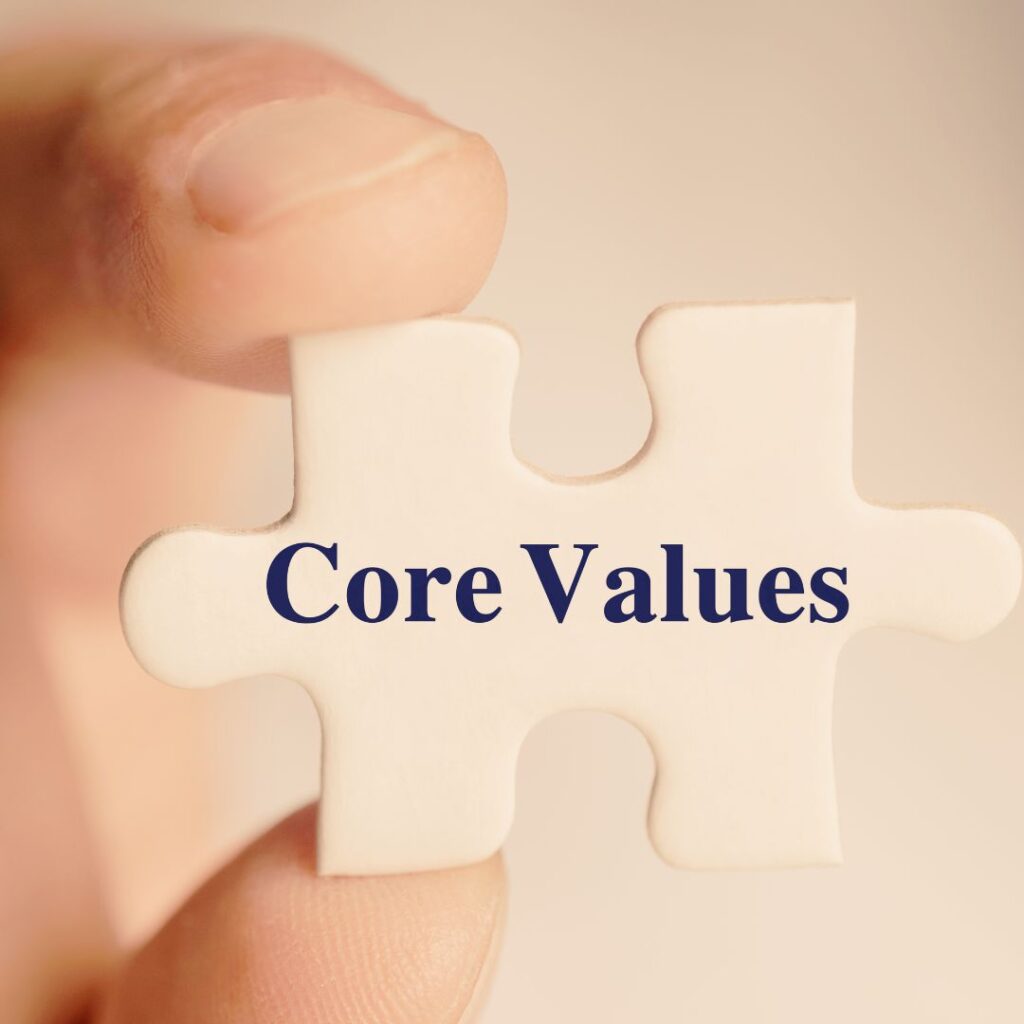
2. explore your values
If you have noticed some thoughts, feelings and behaviours that suggest you may hate yourself, one ‘safe’ step to take after this could be to think about your values. This step may help you to have a bit of a plan going forward, we need to know who we are, what we care about and value to know what to focus our energy on.
Understanding and aligning your actions with your core values can be a transformative experience.
If you haven’t thought about your values before, I have a Values PDF that you can download here for free. This can help to get you started in thinking about what you truly value in life. I think this is a good place to start because it doesn’t focus on self-love at all! It is merely writing down what you value in life and if it’s difficult to think about that, or you feel guilty about that – have a think about what you value in others first.
Identify what truly matters to you, and make choices that resonate with these values. Living authentically can really enhance self-worth and contribute to a more positive self-image. Why? Because it can help you to feel like you are living purposefully, you are contributing in the world and to others.
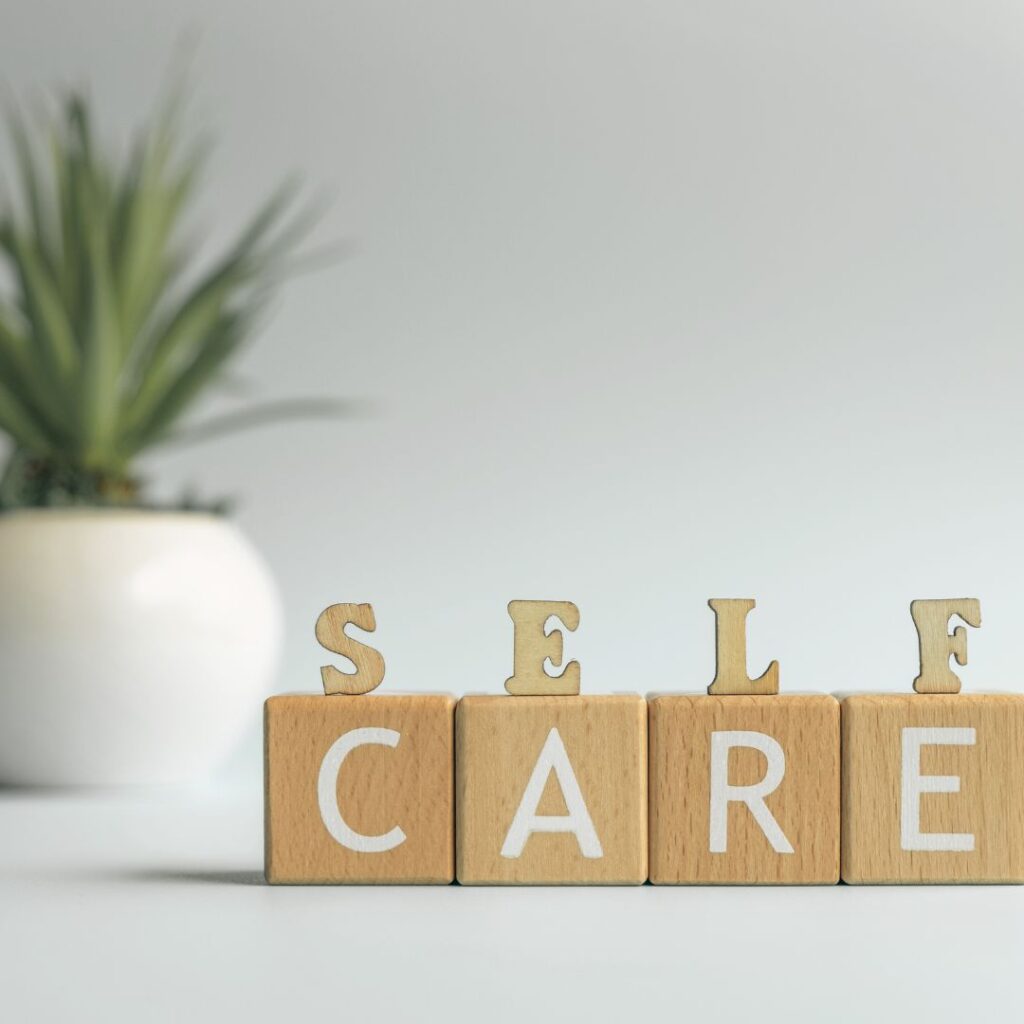
3. self-care!
Prioritise self-care as an integral part of your routine. You know I am BIG on self-care, it’s all I go on about. Especially the notion of Holistic Self-Care. Holistic Self-care nourishes your mental, physical, emotional, social and spiritual well-being. By dedicating time to yourself, you send a powerful message that you deserve love and attention….did that make you cringe? 🤨It’s ok if it did, hear me out!
Self-Care never used to be a word that even existed in my vocabulary. Self-punishment on the other hand? That was just part of daily life. When my body was in pain from too much exercise, instead of resting – I would just yell at myself internally ‘you are so fucking useless! you need to do more, stop being so weak, toughen up’. The thought of stretching or doing yoga or just, I don’t know, sitting down and relaxing – just felt too shameful. I know that might sound weird (or maybe it doesn’t?) but I felt like I didn’t deserve self-care…and that is where I had it all wrong.
We don’t need to earn the right to care for ourselves. We need to care for ourselves! It’s just basic common sense. If you don’t eat enough nutrients, your body will be deficient of essential nourishment it needs to not only survive but thrive. You will continue to be in pain, if you don’t allow your muscles to recover. You will have no flexibility and be more prone to injury if you don’t stretch your fascia.
You will continue to hate yourself and carry on in life doing things that feed this monster unless you start caring for yourself. For some other blog articles about self-care, here are a few you can read through –
- Holistic Self-Care
- Social Self-Care
- Mental Self-Care
- Emotional Self-Care
- Physical Self-Care
- Spiritual Self-Care
If you catch yourself thinking – ‘but, I don’t have time for self-care, I am too busy doing (fill in the blank here) for (list all the other people in your life you put first). Let me ask you this, if they are so reliant on you, don’t you want to make sure that you can provide for them? What if you burnout and get sick? What if your body says no and you can’t do it anymore? Self-care (if not for yourself, to begin with) is just as important for the way you make yourself available to others.
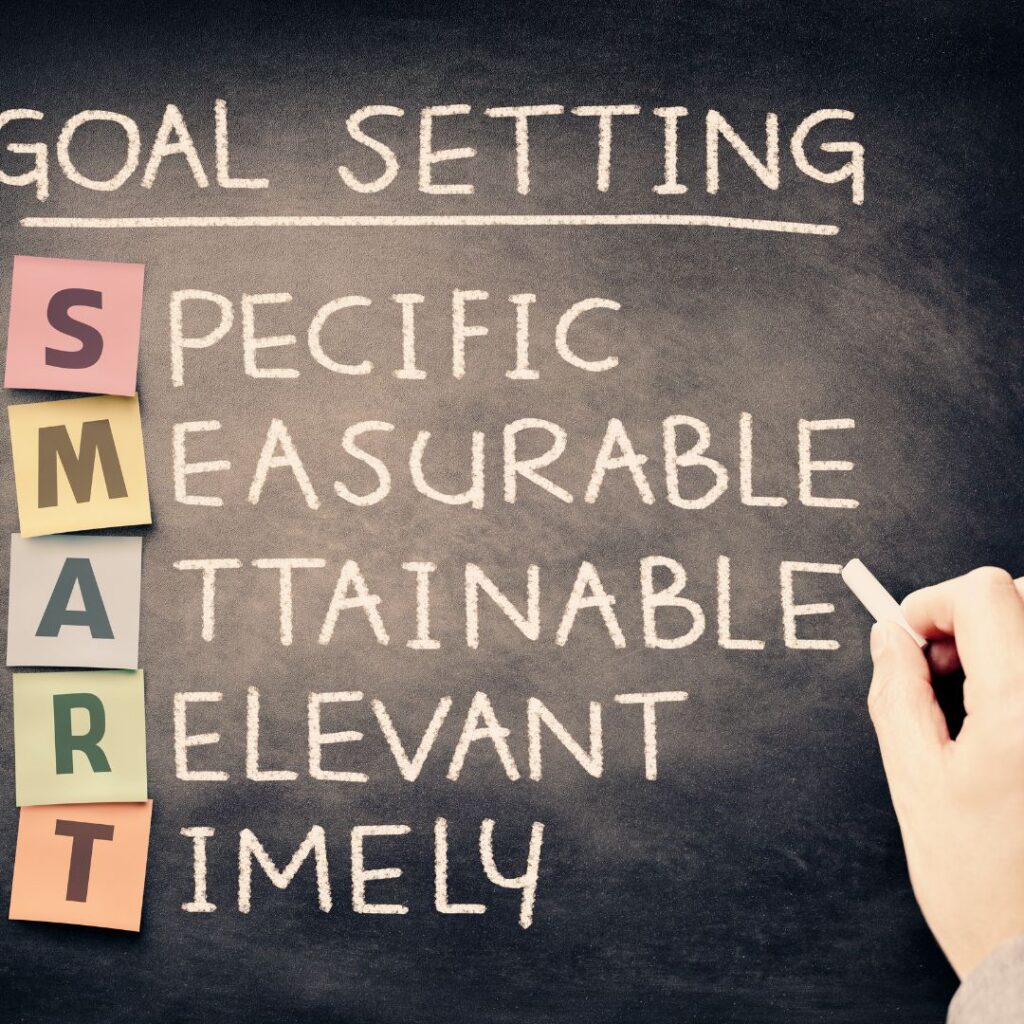
4. set realistic goals
Often, self-loathing stems from unattainable standards and expectations. Hello perfectionists, I am looking at you. I mean that in the kindest way possible, I am a recovering perfectionist btw!
When I refer to setting realistic goals, it’s two-fold. Set realistic goals about the process of hating yourself less and realistic goals for all other things. Break down larger goals into smaller, more achievable steps. It is normal to take 2 steps forward and a step back, that is ok. Here is an article that further discussions reasons to set realistic goals.
In setting realistic goals, it is also important to celebrate your victories, no matter how small, and recognize the progress you make along the way. This approach promotes a sense of accomplishment and give you little boosts of self-esteem.
Now, I know this may not be easy for you. I’m totally shit at this, I NEVER celebrate goals. It’s always ‘oh cool, that’s finally done, NEXT!’ But, I actually think there is real benefit to celebrating achievements when it comes to hating yourself less. Innovative Resources have written an article that helps to explain this. You can read that here.
Start small, if it feels difficult for you to celebrate an achievement – just go slow. You might need help with this – for example, if you accomplish something at work and your boss congratulates you, rather than fobbing it off, try taking a breath and say ‘thanks’. Later on, take the time to pause and think about how much work (and hours) you put into it and allow the feeling of someone recognising this effort to sit with you.

5. cultivate positive relationships
What’s that saying by Jim Rohn? ‘You are the average of the five people you spend the most time with’…or something like that. I don’t know how I feel about this quote, but I do know that my self-loathing part LOVED other self-loathers! It made me feel normal, seen and understood. I didn’t feel like I needed to explain myself to anyone. It was great.
Well, I hate to say this, but if you don’t have anyone in your life that has a positive self-image, it may be time to find one! It doesn’t mean you have to stop being friends with people who don’t like themselves, but making an effort to have people in your life that aren’t self-loathers is eye-opening (to say the least!)
Surrounding yourself with positive and supportive people can significantly impact how you perceive yourself. When you comment about how horrible you are, they are quick to challenge you on this. They may even make comments about themselves in a more positive light.
For example, friends (other self-haters) would tell me that I say ‘sorry’ too much. I didn’t pay attention to this initially because it was right on track with my self-hatred and besides, they say it too! However, this changed when my husband (not a self-hater) said to me ‘if you say sorry for things that don’t warrant an apology, how would I know if you were actually sorry about something that did? The word loses it’s meaning’. 🤯
Other things I have noticed over time is how much more confident people are when they don’t hate themselves. They seem to have a more easeful existence and spend time caring about different things. It’s a whole other world, I tell you! Anyway moral of the point is, build relationships that uplift and encourage you. Learn from others who don’t live with self-hatred and see how they think about things differently.

6. LEARN FROM MISTAKES
This is where it really can start to feel difficult. As a self-hater – any mistake you make can be interpreted in your mind as ‘you complete fucking failure, piece of shit’ (or you know, something along those lines). But what if you looked at these situations and were able to take a lesson out of them? Then would they be utter failures, or would they just be lessons learned or trial and error.
I have always admired people that ‘give it a go and see how it lands’. I mean, who ARE these people anyway and how can they just do that without overanalysing all the 452 things that could go wrong if they mess it up?! If you are able to do this – go for gold! I am totally envious of your abilities 😉
For those of you who are more like me, it make be difficult to make decisions – purely because we don’t want to fail. We don’t want to make a mistake or not do it well enough, so we just don’t do it at all. This can show up EVERYWHERE in life.
Like, ‘Oh I need a new table, let me just look through 10 catalogues, go shopping online and in real life and sort through ALL the options. Oh, now I need to wait for it to go on sale, because I can’t spend that much money on myself’…1 year later, ‘I still don’t have the table, they just don’t have the one I want’ (insert perfect imaginary table in my mind). Guess you’ll just go without the fucking table then, won’t you?! Argh, why can’t I just make a decision, I’m so hopeless’. – You get my point.
Learning from mistakes has actually been super helpful! I now look at future goals as more of ‘an experiment’ or I’ll just try this small thing out and see what happens, then if it’s all good – I will go one step further. Again, start small – small things that don’t hold as much importance to you, try those first. Go into it with the view that it will be an experiment, just something to try, less expectations on yourself to be ‘the best’ or whatever it is that you would normally think.
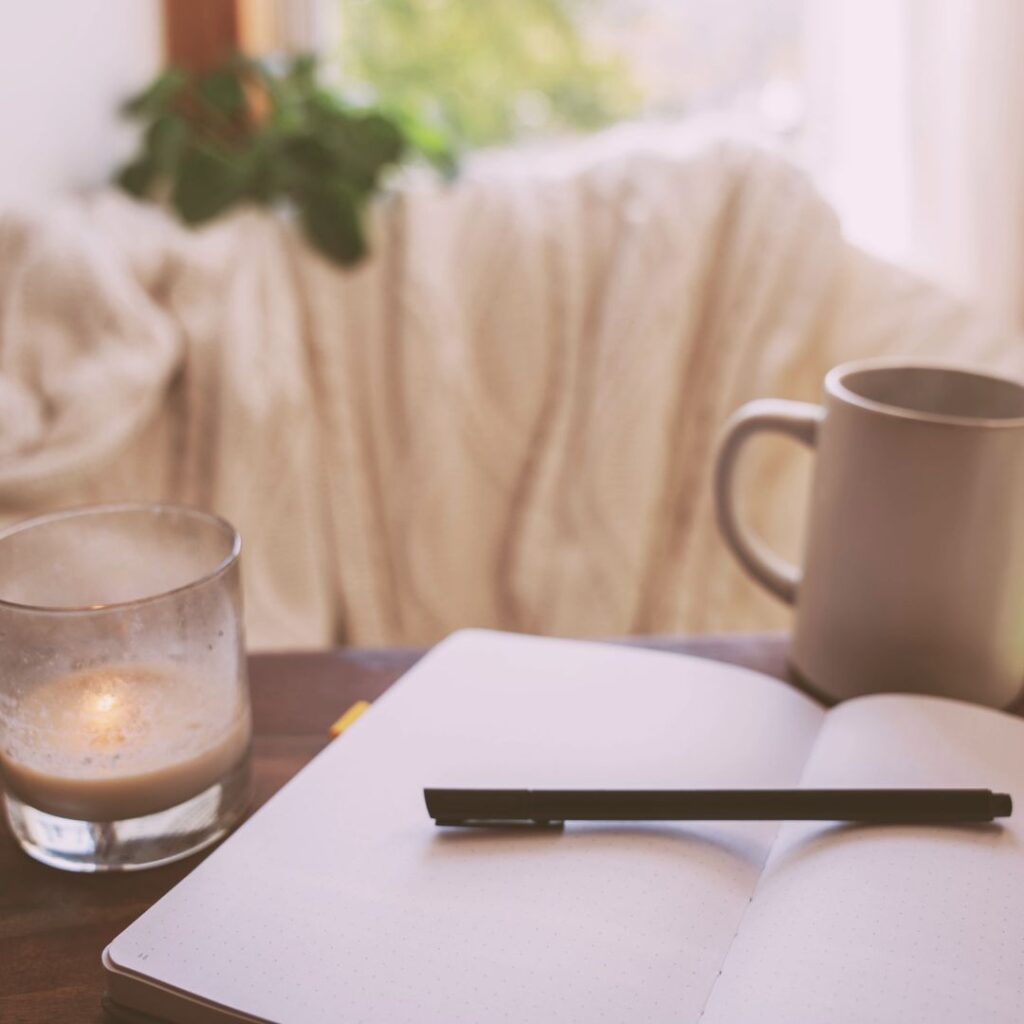
7. self-help journal
This can also feel a bit uncomfortable, but it is something that you can do in your own time, it doesn’t cost anything and it can help you to prepare for the next few steps. When I started my ‘hate myself less’ journey, one thing that helped immensely was self-help books.
Again – I would NEVER have considered reading a self book when I was younger. But, I have read a lot – one after the other that really helped me. Two in particular where ‘Unworthy’ (Anneli Rufus) and ‘Beautiful You’ (Rosie Molinary).
The first book helped me to reflect on why I hated myself, where it stemmed from and what I was doing on a daily basis that demonstrated this. I loved reading this book because it was clearly written by someone that understands exactly what self-loathing can feel like.
The second book includes 365 journal prompts that all work towards you improving low self-worth, body image, etc. The idea is that you complete one task per day, doing this activity daily helps to re-wire your brain. I’ll be honest, I didn’t complete the entire 365 days. However, I did complete a solid 6 months (or more) and it actually really helped!
After a while, I started noticing my negative thoughts in real time, I stopped a lot of my self punishing behaviours and I changed. Writing a ’10 things I love about you’ note to a few close friends felt really nice, and I know that some of them really appreciated it too. I wrote one for my partner after we’d been dating for a while and he still carries it around in his daily calendar every year 🥰
Truly, self-help books were the first tangible things that helped me to hate myself less. The impact they had has not left me. Whilst the ‘self-love’ end of the spectrum is still far away – I can no longer see the ‘self-loathing’ end that came with all the self abuse and punishment I created for myself. Which is nice! Very nice. Life is so much easier when you don’t loathe yourself. The energy you have to put into other things is amazing!
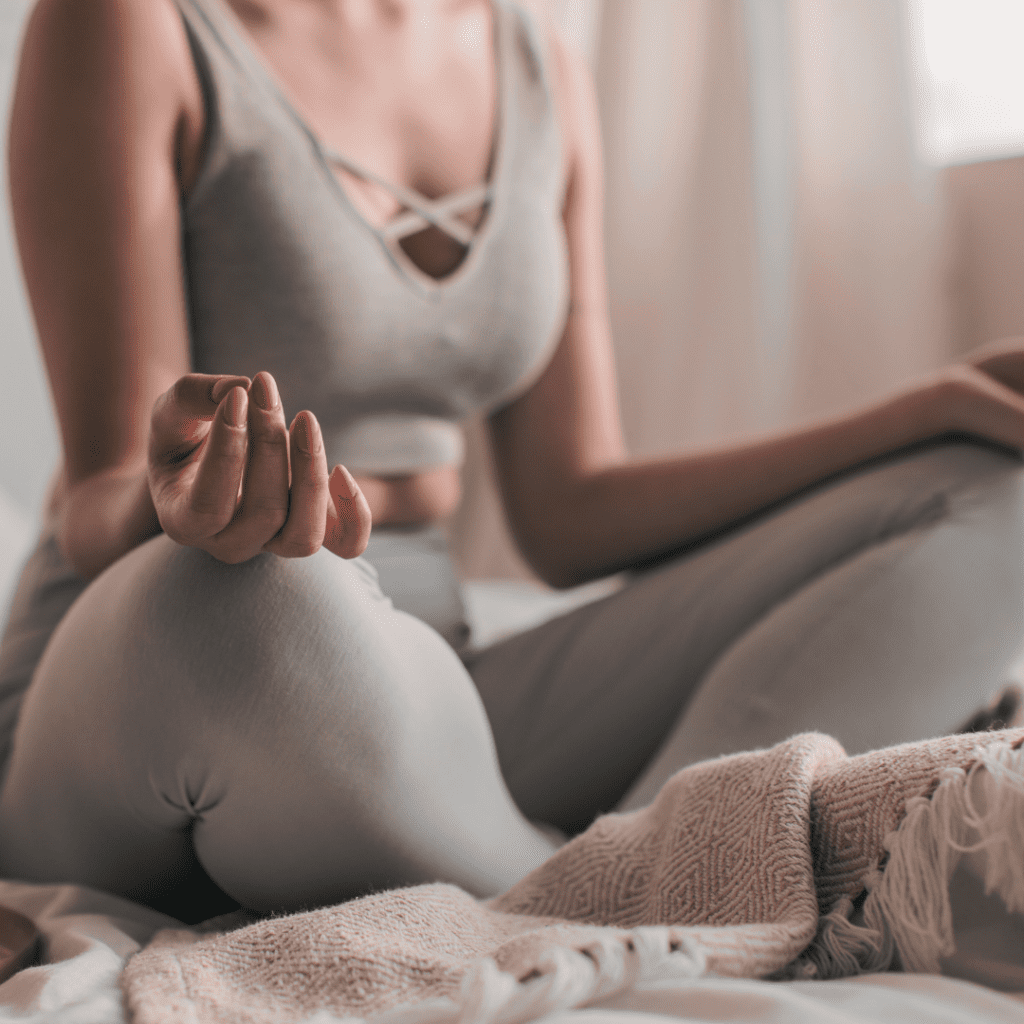
8. mindfulness and meditation
Mindfulness and Meditation are two separate things, but I think they go hand in hand when it comes to hating yourself less. For some, achieving mindfulness or trying meditation can feel very uncomfortable! Especially if you are used to keeping yourself busy and burying your head in work or other tasks to avoid being left alone with your self deprecating thoughts.
I understand how uncomfortable it can feel to meditate or engage in mindfulness. I used to really struggle with it and part of the reason was because it meant I had to ‘sit with’ all the negative self loathing thoughts and feelings. If this is something that you think you will struggle with, I would encourage you to speak with a therapist about it. In fact, seeing a therapist is the next step on this list!
I have written about the usefulness of using meditation in the past, you can read that here. Incorporating some mindfulness practices and meditation into your daily routine is part of the hating yourself less process.
The techniques can help you become more aware of your thoughts and feelings (without judgment). Or when you notice the judgement, it can allow you space to reflect on what has shown up for you that leads to the judgement. By engaging in mindfulness in daily life, you can start to understand the connection between self-loathing behaviours/actions and what the underlying feelings are.
This comes up a lot with earing disorders, rigid exercise routines, etc. In fact, all of the behaviours I listed under the first point – the recognising self-hatred part, highlight the importance of mindfulness when it comes to hating yourself less.
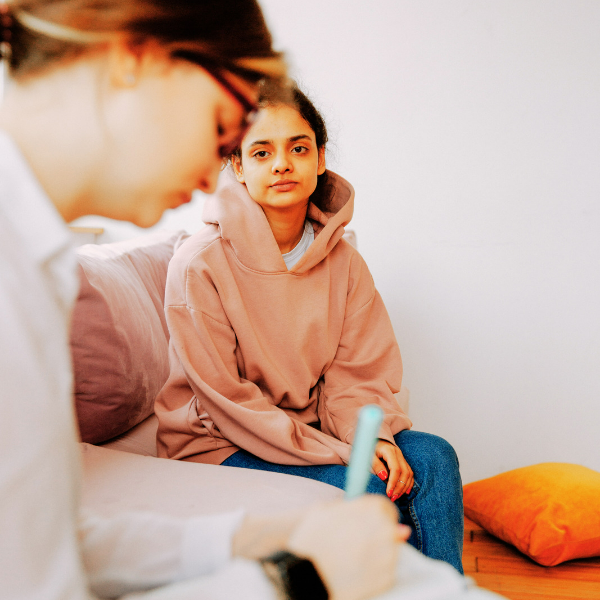
9. therapy
Every person could use a therapist at some point in their lives. I’ve written about the importance of therapy for social workers here – if you want a more detailed read. It is probably obvious that seeking therapy is a positive step towards hating yourself less. I want to remind you that there is no ‘quick fix’, when you see a therapist – they cannot wave a magic wand and ‘get rid of’ the way you feel about yourself. Nor can they take away anything that has happened to you that has led to this self-hatred.
However, they can be with you, and hold space for you to explore your self-hatred. They can help you to understand where it has stemmed from and how certain risky behaviours have helped you to feel safe. Yes, you read that correctly! Sometimes our risk taking behaviours are born from self-hatred and it feels safer to do this, then to try to think about past traumas that led to it to begin with.
Developing a trusting professional relationship with a therapist is a beneficial step towards hating yourself less. You can explore different ways of coping with uncomfortable thoughts and feelings. Ways that are not self-harming in nature. For me, therapy has played a big part in hating myself less. The part is has helped with the most has been the cessation of behaviours that I used to engage in as a way of ‘coping’ with difficult feelings.
Therapy doesn’t just help you improve your self-esteem, it helps you to improve your self-worth. These are two different concepts, it is possible to have confidence in your ability to perform a certain task – but do you hate yourself less because you can do said task? Probably not. Choosing Therapy have written an article about the differences, which you can read here.

10. Practice self-compassion
Self-compassion is so difficult when you hate yourself. It involves treating ourselves with the same kindness and understanding that we would offer to a loved one facing challenges. Can you imagine? Actually being as kind to yourself as you are to other people?
This too was a foreign concept for me. Self-compa…what? What does that even mean? Well, there is actually a lovely woman in the world that shares the importance of this very concept. Her name is Dr Kristin Neff, you can wiki her here. Her website can be found here.
Dr Neff has written books, she has meditations, etc online and is just a great human to listen to about this topic. Seriously, she has the softest, most caring voice I have ever heard. So much so that I felt a little uncomfortable at first (our inner critic doesn’t sound that nice!).
Self-compassion is something that is still a work in progress for me. But having all of the other steps I mentioned has made this one easier. Understanding that imperfections are a part of being human and practicing self-compassion offers opportunities for growth. So, why not give it a try? Remember, small steps.
